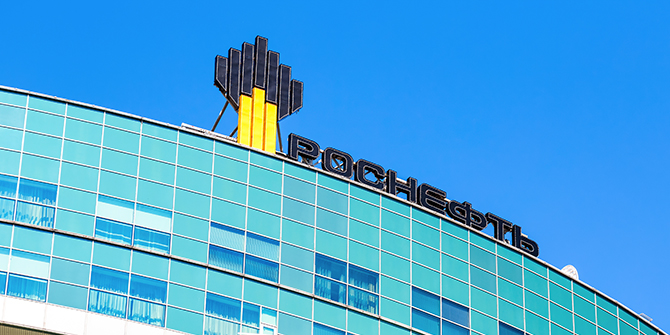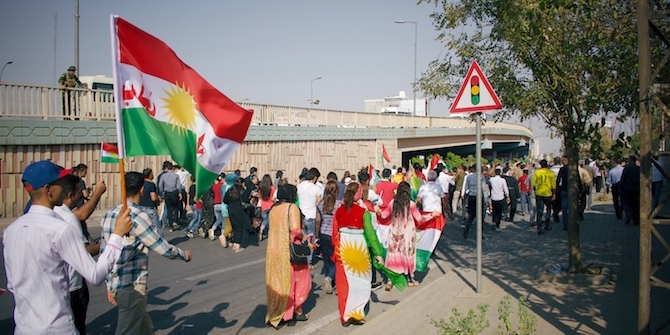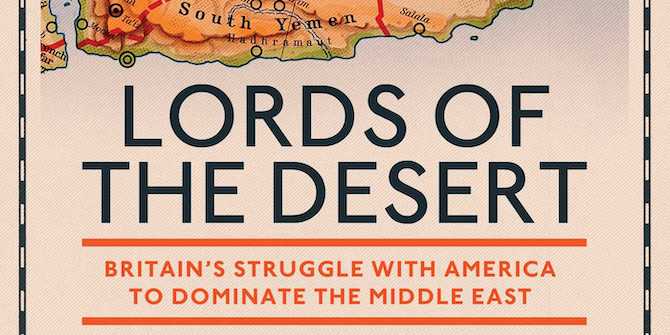by Maxim A. Suchkov
This memo was presented part of a workshop organised by the LSE Middle East Centre and the RAND Corporation looking at Russia’s strategy in the Middle East on 28 March 2018.

‘Iraq today is not a unified state but rather a collection of territories, the economic, social and political ties of which are stronger with external powers than amongst themselves.’ This characterisation by a senior Russian official of a modern-day Iraqi statehood reflects to a large degree Moscow’s vision for a mixture of challenges and opportunities in the country plagued by years of violence and conflict.
Indeed, Iraq remains one of the most fragmented countries in the Middle East. The central government controls only select territories with the rest of the terrain virtually run by leaders of local communities. Ethnic cleansings are not rare and so are subversive terrorist activities. Persecutions of ethnic and religious minorities – Christians, Yazidis, Mandaeans and many others – continue at appalling scales. Given the geography, geopolitics and political history of the country, Iraq’s ultimate disintegration would have a disastrous effect on the region.
Despite years of training by the US and its allies, the Iraqi army remains incapable of meeting the country’s security challenges while Iraqi security forces are unable to conduct counter-terrorist operations, let alone deter a foreign power, without external support.
For over a decade, this role has been played by the US. Yet in some parts of the country the influence of Iran – and to a lesser extent Turkey – is fairly significant. Moscow is of a firm belief that the strengthening of Iran in Iraq was made possible due to the US invasion in 2003. Iran’s influence in the country further increased following the American drawdown under President Obama with Sunnis virtually losing control over the central government and Shias acquiring key positions in the Iraqi military and political apparatus. Baghdad thus has to balance between Tehran and Washington, as well as between Ankara and Riyadh.
The combination of these and other factors shape Moscow’s cautious approach vis-à-vis Iraq, even though over the recent couple of years bilateral cooperation has been on the rise.
The decade-long energy cooperation between Moscow and Baghdad experienced a setback following the US invasion of Iraq. Yet, three years after the execution of Saddam Hussein in 2006, Russian companies had started regaining opportunities lost. In 2009, a consortium of Russian Lukoil oil company and Norwegian Statoil managed to receive a contract to develop the West Qurna 2 Oil Field, about 65 km north-west of Basra. The field has 13 billion barrels of oil reserves. A respective agreement was signed in January 2010. In 2013 an additional protocol to the agreement was adopted extending the contract for another 25 years. On 29 March 2014, a commercial exploration of the field was launched.
In 2009, another Russian company, Gazprom Neft received 30 percent in the consortium with Korean KOGAS (22.5 percent), Malaysian Petronas (15 percent) and Turkish TPAO (7.5% percent) for the development of the Badra oil field in eastern Iraq with its estimated reserves of 3 billion barrels. The commercial oil production at the field started in May 2014 and the first shipments took place in September of that year.
In 2017, Russia’s leading oil company Rosneft announced it was joining forces with the Kurdistan Regional Government to launch an $1.8 billion project to jointly use an oil pipeline in Iraqi Kurdistan (KRI). In a few weeks Rosneft provided an advanced payment of $1.3 billion to Erbil. The Russian firm had inked a package of binding deals with Iraqi Kurdish authorities to cooperate on five ‘production blocks’ (a total of 670 million barrels). Rosneft would have to pay up to $400 million ‘for the projects farm-in and geological information’, although half of that may be compensated by oil production. With this deal, Rosneft eyed further boosting its role as the key international investor in the KRI. Initially vexed by the agreement which Rosneft insisted ‘had been carried out within the powers of the [Kurdish] autonomy’, in January 2018 Baghdad mentioned the Russian company merely ‘made a mistake and would not be punished or persecuted’ but made it clear the central Iraqi government would not recognise nor abide by any deals made without its consent.
The balancing act between Baghdad and Erbil has been an issue Moscow has been grappling with as much as other outside players. Yet Russia has been skilful in reaping benefits by building on its historic ties with both parties. The de facto partition of the country is a reality Moscow has to deal with even though Russia has been advocating for Iraq’s territorial integrity ‘unless the elites in Baghdad and Erbil themselves decide otherwise through constitutional procedures’. In this respect, an illustrative example of Moscow navigating the rough waters of Iraqi politics has been the Kurdish independence referendum held in September 2017, where Russia emerged as arguably one party whose position satisfied both Erbil and Baghdad.
The military cooperation has been another dynamic area on the Russia–Iraq bilateral agenda. In 2012, Moscow and Baghdad signed a technical–military ‘package agreement’ worth $4.3 billion. The agreement involved the purchase of 43 Russian Mi-35M and Мi-28Н military helicopters, and by 2016 all of the latter had been delivered to the Iraqi army under the contract provisions.
In the summer of 2014 Moscow supplied Iraq with 10 Su-25 jet aircrafts in a deal reportedly worth $500 million. The following autumn Russia again provided the Iraqi military with ‘a large amount of air defence systems’.
With talks on military sales between Russia and Iraq continuing on ‘permanent basis’, as Russia’s top diplomat on the Middle East Mikhail Bogdanov once put it, Moscow and Baghdad clinched a new deal on military–technical cooperation in October 2015.
The latest military deal was signed on 20 July 2017, for the purchase of Russian T-90 tanks. In February 2018, the first shipments of T-90Cs started to arrive in Iraq.
When President Putin took the decision to intervene in the Syrian conflict in the fall of 2015, Russia – along with Syria and Iran – reached out to Iraq to set up a joint information centre in Baghdad. The centre was deemed to serve as a venue to coordinate counter-terrorism efforts against the Islamic State (ISIS) but many in Moscow believe it ignited a ‘fair amount of jealousy’ from the Obama administration and pushed the Americans to conduct more proactive anti-ISIS activities.
The launch of the Russian campaign in Syria opened a new chapter in Russia–Iraq relations. The number of contacts between the two countries in the last three years has been remarkable, and practically every meeting saw substantive discussions on military cooperation. Putin first hosted Prime Minister Abadi in May 2015 and the two later met at the UN General Assembly in New York in September of that year.
The trade turnover between the two countries has seen its ups and downs over the recent years. In 2015, it peaked at $2 billion – the highest in the history of Russia–Iraq relations, but in 2016 it decreased by 49.26 percent. Machinery, transportation vehicles, metals, wood, paper, chemical industry products and agriculture are Russia’s main exports to Iraq. The latter is of special importance given Moscow’s ambition to augment its presence in the agriculture market of the Middle East.
Iraqi overtures to Russia are perceived in Moscow as reflection of Baghdad’s disappointment with Washington, and the Russian authorities cannot but seize the opportunity to deepen their influence across the region. Yet the country’s instability, complex bureaucracy, high level of corruption, legislative controversies and the lack of governmental guarantees for the safety of investments put serious limits on a deeper Russian engagement in Iraq. This isn’t to say Moscow cannot work under such conditions, but this is something Russia carefully examines and draws respective calculations for a more careful yet advantageous modus operandi in Iraq.
Maxim A. Suchkov is Editor of Al-Monitor’s Russia-Mideast coverage. He is a non-resident expert at the Russian International Affairs Council and at the Valdai International Discussion Club. He tweets at @MSuchkov_ALM.
Other posts this series:
- GCC–Russia Relations: Looking beyond Syria and towards Investment by Courtney Freer
- Russia and the GCC: An Unlikely Partnership by Yury Barmin
- Iran’s Relations with Russia: From Tactical to Strategic? by Aniseh Bassiri Tabrizi
- Russia and Iran: Common Interests, Ongoing Differences and Growing Risks by Mark N. Katz
- Russia in the Middle East: Trust no one, but sign business deals by Agathe Demarais
- The Limits of Russian Strategy in the Middle East by Ben Connable and Becca Wasser






